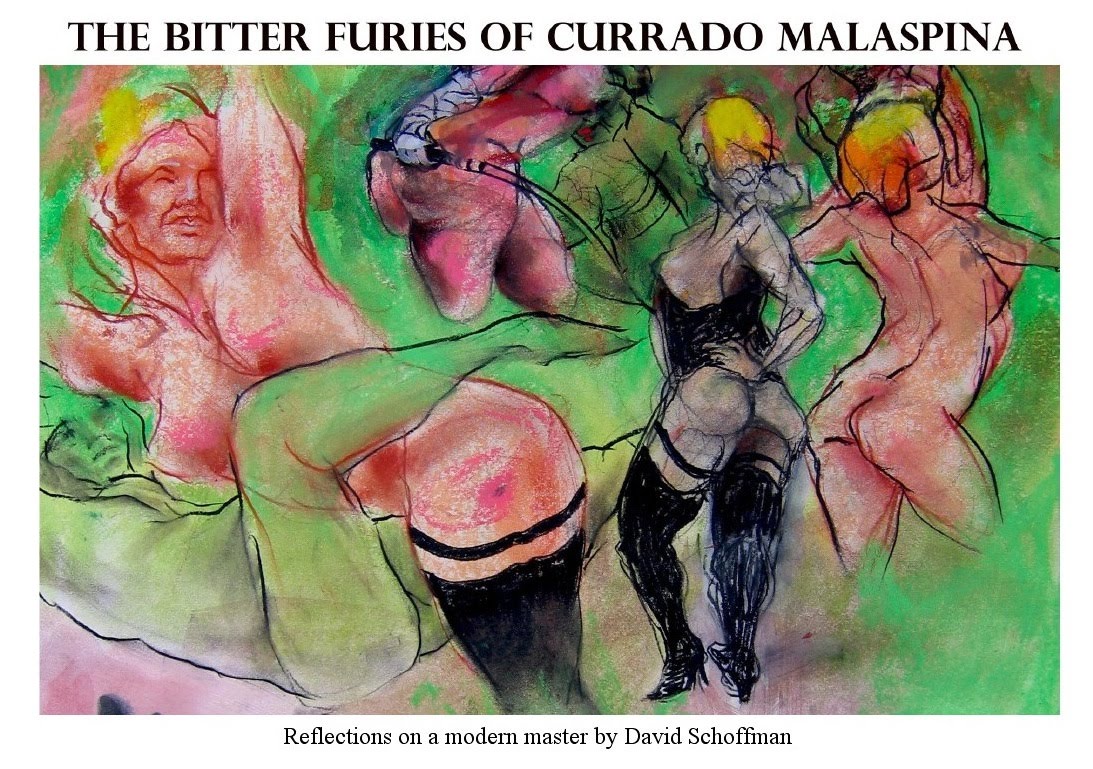When he reached the age of fifty my good friend Currado Malaspina entered the swelling ranks of the nearly content. Unattained aspirations, unrequited fantasies and unrealized goals were suddenly foregrounded as his own background began to recede. He developed an unhealthy habit of counting in his head his former mistresses, lovers and wives. He began his daydreams with the phrase "what if" and revived old grudges with reveries of revenge. He became a man immersed in a past buried within an irretrievable web of circumstances and missed opportunities.
To Currado the present became increasingly remote while he suddenly became effectively impotent.
To Currado the present became increasingly remote while he suddenly became effectively impotent.
Thus began the La Décennie Noire, Currado's dark decade of inactivity and depression.
Or so reads the conventional rendering of my good friend's mid-career creative impasse. The truth, as is typical in such cases, is much more nuanced.
Rilke observed that "works of art are always the result of one's having been in danger," and so it was with Malaspina. Experiencing a profound decline in his formally robust libido, Currado began consulting with a battery of doctors, therapists, healers and hypnotists. Each one made the same sober evaluation.
Currado was getting old.
Finding this unacceptable my resourceful friend found succor from a reliably familiar source - the brazenly naked, deliciously fluid, erotically charged commotion of human flesh in flux. With his ample resources Currado hired actresses and dancers, acrobats and hookers, weightlifters and bus drivers, women, men, young, old, anyone who would take their clothes off for him and pose.
The result was "Ten-Thousand Figures," a vast, Olympian act of voluptuary reclamation.
The success of this enterprise is a matter of some dispute. Currado claims his legendary vigor returned within weeks. Others suggest that Malaspina became deeply disturbed at his burgeoning bisexuality. There are even a few skeptics who insist that the whole thing was one big public relations hoax.
One thing remains certain. As Currado enters his seventh decade, an age where one should find at least some small measure of sagacity and fulfillment, muddling insecurity remains the prevailing leitmotif for this overgrown adolescent genius.
 |
| Currado at the seaside sanatorium Sihirli Dağ, Izmir, Turkey 2005 |
Or so reads the conventional rendering of my good friend's mid-career creative impasse. The truth, as is typical in such cases, is much more nuanced.
Rilke observed that "works of art are always the result of one's having been in danger," and so it was with Malaspina. Experiencing a profound decline in his formally robust libido, Currado began consulting with a battery of doctors, therapists, healers and hypnotists. Each one made the same sober evaluation.
Currado was getting old.
Finding this unacceptable my resourceful friend found succor from a reliably familiar source - the brazenly naked, deliciously fluid, erotically charged commotion of human flesh in flux. With his ample resources Currado hired actresses and dancers, acrobats and hookers, weightlifters and bus drivers, women, men, young, old, anyone who would take their clothes off for him and pose.
The result was "Ten-Thousand Figures," a vast, Olympian act of voluptuary reclamation.
 |
| Detail from Dix-Mille Nus, 2001 - 2011, Currado Malaspina |
The success of this enterprise is a matter of some dispute. Currado claims his legendary vigor returned within weeks. Others suggest that Malaspina became deeply disturbed at his burgeoning bisexuality. There are even a few skeptics who insist that the whole thing was one big public relations hoax.
One thing remains certain. As Currado enters his seventh decade, an age where one should find at least some small measure of sagacity and fulfillment, muddling insecurity remains the prevailing leitmotif for this overgrown adolescent genius.








